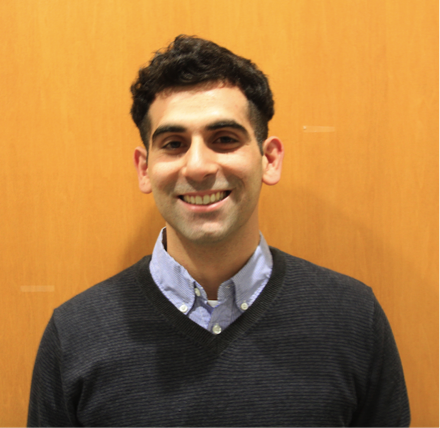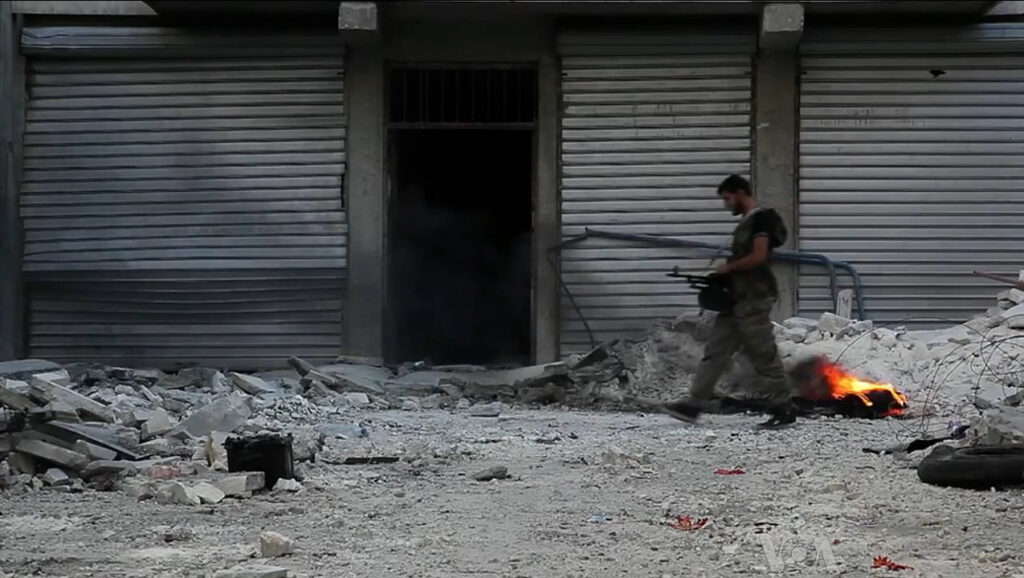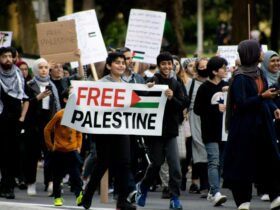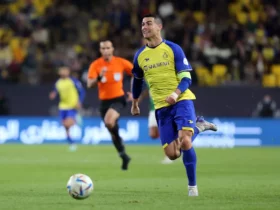
The Syrian Civil War has been going on for several years now and has become more complex and protracted than ever. Although the international community has been reluctant to take action in the conflict, the ongoing refugee situation in Europe and numerous terrorist attacks by ISIS have brought the issue of the Syrian Civil War back on the agendas of global leaders. The international community is at a pivotal moment in which resources can be jointly mobilized to solve both these pressing conflicts. As ISIS and the Syrian Civil War are ultimately interwoven, they must be approached comprehensively.
I seized the opportunity of my semester abroad at the George Washington University in Washington, DC to interview Faress Jouejati, a highly involved young academic and professional. Mr. Jouejati is an American-Syrian Adjunct Professor of International Political Economy at the George Washington University. He has established and worked with a network of citizen journalists and organizations to disseminate information about the Syrian revolution and to coordinate humanitarian efforts for the Syrian people.
Background
GLIMPSE: What do you consider the root causes of the Syrian Civil War?
JOUEJATI: A fairly large, and unprecedented, demonstration was held in central Damascus on February 17, 2011, after police beat a shopkeeper in the famous al-Hamidiya market. Although an isolated event, this was the start of the Syrian revolution. Then on March 6, more than 15 children were arrested for spraying anti-government graffiti on school walls. During their internment, the citizens of Daraa held unprecedented protests against the regime. These kids were returned to their families days later, bruised and tortured, which led massive protests in Daraa and across the country. While those are the root causes of the Syrian revolution, it is important to look at the political consequences of Bashar al Assad’s neoliberal economic policies (state-business actors, free trade agreements, outsourcing the provision of shelter to private development companies), as well as the handling of the 2009 drought.
From when Bashar took office in 2000 until 2010, state-business actors, such as Rami Makhlouf, were obtaining ever-increasing rents from the country – partly because Bashar was unable to muster enough force to prevent this scale of corruption. The gap between rich and poor increased significantly in those years. This, combined with the torture of the Daraa school children and Arab Spring protests across the region, created the ripe situation in which Syrians began to protest against the regime.
GLIMPSE: What are the main obstacles to resolving the conflict?
JOUEJATI: There are a number of reasons as to why the Syrian conflict is so difficult to solve. On the international level, there are a lot of competing interests (US, Russia, Iran, Saudi Arabia, Israel, France, Turkey, Egypt, etc.). Because of these competing interests, the international community has been unable – or unwilling – to devise a comprehensive strategy to restoring peace in the country in a way that serves the interests of each of these states. On the domestic level, we are dealing with a half-century-old dictatorship. If you look at the regime’s military strategies and rhetoric, it is quite clear they are not interested in a political solution. Rather, the regime has relied on the “security solution” to defeat all opposition—moderate or otherwise. Their stance is reinforced by what Shabiha gangs have frequently scribbled on the walls of buildings across the country: “al assad ow mna7req al balaad” (the Assad regime or we will torch the country).
On the Syrian Opposition
GLIMPSE: What kind of vision do the representatives of Assad’s opposition (National Coalition for Syrian Revolution and Opposition Forces) have for post-war Syria?
JOUEJATI: The Syrian opposition represents all segments of Syrian society and has representation on the ground in Syria. They envision a democratic Syria where all people are equal under the rule of law regardless of race, religion, ethnicity and gender.
GLIMPSE: How representative of the Syrian people is the opposition force?
JOUEJATI: The opposition is very representative of the Syrian people and is composed of all segments of Syrian society including Sunni, Shiite, Alawite, Christian, Kurds, Druze and Assyrians.
GLIMPSE: How unified is it?
JOUEJATI: This is a difficult question to answer. In short, with each passing day and in the absence of any kind of meaningful intervention, the opposition – both armed and unarmed, inside and outside the country – becomes more and more fragmented, and this obviously has big implications for [the]uprising. For example, one of the main purposes of the expatriate opposition is to represent popular resistance on the ground in Syria, such as the Free Syrian Army (FSA), and to lobby on their behalf. Since the expatriate opposition has been unable to win any meaningful support from the international community (in the form of weapons or money to the FSA), the FSA and other popular resistance groups have increasingly separated themselves from the expatriate opposition.
As a result of failing to obtain weapons for the FSA, FSA members find themselves in a huge dilemma: either stay true to the goals of the revolution by remaining in the FSA (which is the most popular resistance group among Syrians) or alternatively, switch allegiance to better-funded, better-armed militias, which tend to be more Islamist. From the perspective of FSA, you either stay in this isolated but popular army, which will likely result in your death, or you join other groups that have better weapons and more money. So, in the absence of any meaningful support, the opposition becomes increasingly divided.
The international community could reverse this situation with ease, though. Arming the FSA would not only cause defections from the Syrian army, but it would decrease the incentive for Syrians to join other extremist militias, and it would give incentive for the FSA to reiterate its allegiance to the expatriate opposition—the only party which represents all segments of the Syrian society.
GLIMPSE: How do the Assad regime and other international actors strengthen or weaken the opposition?
JOUEJATI: Beyond the supply of canned food, blankets, walkie-talkies and some light weaponry, the international community has not given much support to the opposition. This is partly because one of President Barack Obama’s conditions to arming the FSA is that they fight ISIS, and ISIS only. Most Syria experts agree that this condition is unrealistic because it is the Assad regime that is responsible for the overwhelming majority of murder in the country. As a result, some of the most armed resistance groups have rejected US assistance. On the other hand, the regime has deliberately targeted the leadership of all opposition forces – armed and unarmed – in an effort to leave the opposition leaderless. By targeting teachers, merchants, doctors, engineers, lawyers and popular commanders, the regime hopes to further fragment and divide the opposition. If the regime succeeds at doing so, the world would see the Syrian conflict in terms of only two options, Bashar al Assad on the one hand and ISIS on the other.
On The International Community
GLIMPSE: In your opinion, should and will the war be resolved domestically or internationally?
JOUEJATI: Despite unequal capacities due to Assad’s weapons support from Russia, Iran and Hezbollah, and the supremacy of the government in terms of money and fighters, the conflict is currently in a stalemate. Of course, it is preferable for the war to be resolved domestically. But again, the regime has taken the ‘security solution’ to solving this conflict—resorting to force to quell protests rather than engaging in negotiations to address the protesters’ needs. So, the international community must balance the playing field in order for this war to be resolved. Only when the opposition is closer to being a strong opponent, the regime will be forced into a position to negotiate in good faith. The reason why all previous negotiations failed (in Moscow, DC, Montreux, Geneva, Luasanne, etc.) is precisely because the playing field is not leveled.
GLIMPSE: What role do you think the “international community” should play in efforts to resolve the war?
JOUEJATI: The international community should balance the playing field in Syria by arming the Free Syrian Army, which would force the Assad regime into serious negotiations. Let us not forget that there already is foreign intervention in Syria: Russia, Iran and Hezbollah have all been arming and financing the regime for years. In addition to arming the FSA, the international community must establish safe-zones and no fly zones across the country, and put additional pressure on Russia and Iran for them to abandon the demand that Assad remains in power.
GLIMPSE: What is Russia’s strategic interest in Syria and the Assad regime? Was Russia’s intervention in Syria counterproductive?
JOUEJATI: Since Russia invaded Syria several weeks ago, its military has bombed more than six hospitals and killed more than 400 civilians (97 of whom were children). By targeting civilians and rebels in the West, Russia allowed ISIS to advance onto Aleppo. Russia is largely refusing to attack ISIS, focusing its airstrikes on Assad’s opposition instead. Russia has three main goals in Syria. Firstly, preserving its seaport in Tartous, which is the Russian Navy’s only Mediterranean port. Secondly, keeping a friendly ally in the seat of Damascus who is willing to continue purchasing Russian weapons that will not be used against Israel. Thirdly, countering US influence in Syria and the region.
GLIMPSE: What is the interest and role of Iran in Syria and the region?
JOUEJATI: Even before the revolution started, Iran dominated Syria as well as the regime of Bashar al Assad. Iran is currently commanding military operations in Syria, managing underground torture chambers, manning checkpoints across the country and has extended billions of dollars in credit lines to the regime in order to pay the salaries of soldiers and other costs. Again, it is Iran, not Assad or the Syrian army, which is commanding military operations in the country.
Iran also has deep interests in Syria. Syria provides a link between Iran and its proxy militia in Lebanon, Hezbollah. Also, Syria is arguably Iran’s most important Arab ally. Finally, without Syria, Iranian influence would be limited to Iraq. Because Syria is part of Iran’s axis, Tehran’s influence extends from the Gulf to the Levant. So Syria is the important link that connects Iraq to Lebanon. Many Iranian policymakers and generals view Syria as one of Iran’s provinces. Iran also believes that by dominating Syria, they are able to contain the influence of Saudi Arabia, which is Iran’s biggest rival.
On Terrorism and the Backlash on Refugees
GLIMPSE: How do you expect the recent attacks in Paris, Beirut and other places carried out by ISIS to affect the situation of refugees in Europe and the European Union’s asylum policies?
JOUEJATI: We have seen the voices of the xenophobic right in Europe get louder and louder as a result of the Paris terrorist attacks. ISIS’ goal in these attacks was to cause an Islamophobic backlash. ISIS is trying to frame a ‘clash of civilizations’ between the West and Islam. So, by strengthening the xenophobic right in Europe, ISIS strengthens its own worldview as well, that there is in fact a clash between the West and Islam. The saddest part is that Islamophobic backlash is being directed at Syrian refugees who are likely to have been victims of and fleeing from ISIS in the first place. I expect the European Union to tighten security at its borders and limit the number of refugees who are granted asylum, playing directly into ISIS’ strategy.
The Take Away
The Syrian Civil War and the terrorist threat by ISIS are intimately connected and must be approached together. The strength of and support for the Syrian government and America’s focus on combatting ISIS rather than the Assad regime (the opposition’s much bigger threat) undermine a successful solution. Without international support of Syrian opposition, the strength and attraction of ISIS and the legitimacy of the Assad regime as the sole, viable alternative will only continue to grow. The most promising options to end the conflict are safe-zones and no fly zones across the country to secure populations, military support to the FSA and increased diplomatic pressure on Russia and Iran.
The views expressed by the author do not necessarily reflect those of the Glimpse from the Globe staff, editors or governors.






